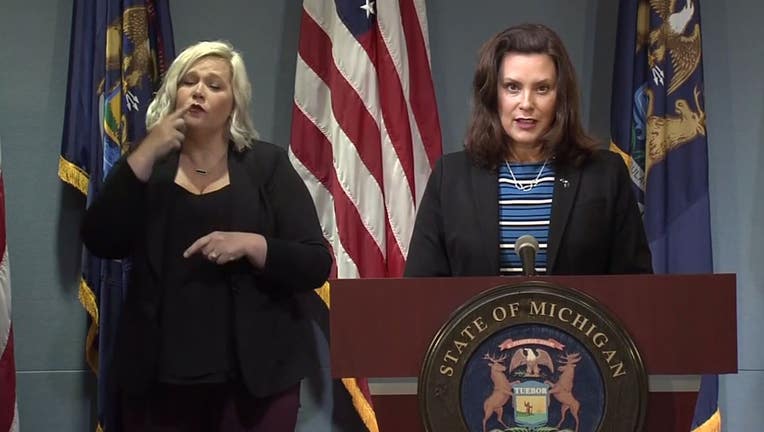Mich. Gov. Gretchen Whitmer signs directive making COVID-19 enforcement a priority for agencies & state police

Governor Gretchen Whitmer has told law enforcement in Michigan, including the state police, that the enforcement of COVID-19 regulations needs to be a 'priority' to slow the further spread of COVID-19.
Executive directive 2020-08 was issued by Gov. Whitmer Tuesday afternoon, says Michigan State Police need to "enforce violations of COVID-19 executive orders" similar to the way police would enforce "any other violation of law, using enforcement discretion as appropriate."
"Where Michigan was once among the states most heavily hit by COVID-19, our per-capita case rate is now below the national average. Our progress in suppressing the disease, however, appears to have slowed," Whitmer said.
In the directive, Whitmer cites the state's COVID-19 cases which have been climbing since mid-June, when the state had a case rate of 15 cases per million people. As of late July, Whitmer said Michigan's case rate is at 50 cases per million.
The governor said the enforcement of her orders "is a key part of ensuring that the resumption of activities does not contribute to the spread of this virus."
Whitmer said state department directors and agency heads need to review the allocation of their resources to ensure enforcement of COVID-19 laws is a priority and that, without it, resuming activities could contribute to the spread of the virus.
"Without effective enforcement, we will move backwards. Individuals, businesses, and the economy will all suffer," Whitmer said. "At work and at play—on the job and in social gatherings—compliance is critical to moving forward."
Whitmer cited the outbreak at Harper's in Lansing where there were 187 known infections, which she said were one of the worst in the nation, for businesses that were not complying with COVID-19 orders.
The directive requires state departments to consider violations of when determining eligibility for licensing.
"This includes any violation of relevant COVID-19 executive orders or epidemic orders. If a state department or agency becomes aware of non-compliance under the law they must consider it to be presumptive evidence of a “public health hazard” or “imminent and substantial hazard to the public health” and take appropriate steps to mitigate any risk to public health and safety. This includes, but is not limited to, suspension of a license or cessation of operation of a food establishment," she said in a statement.

